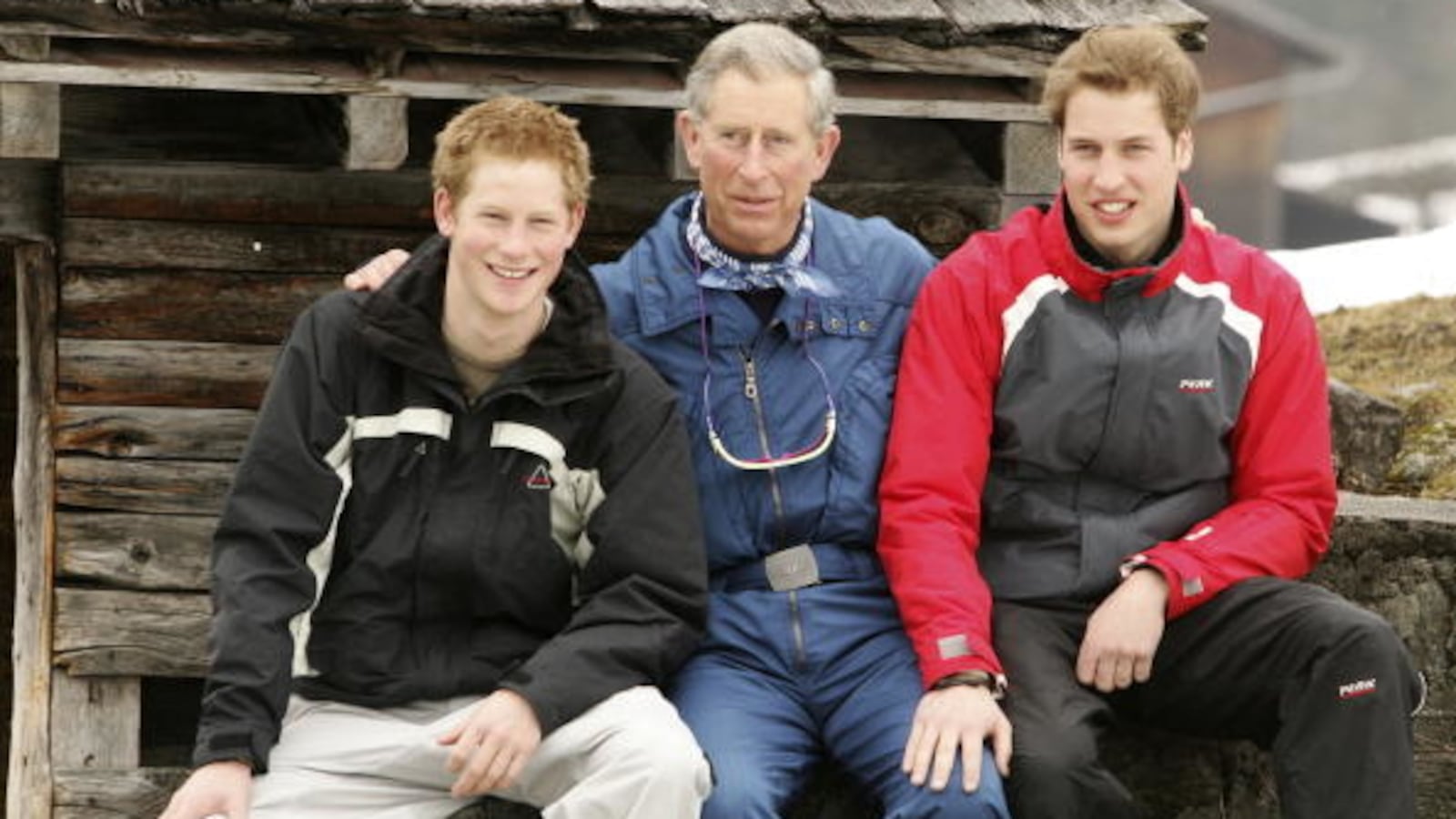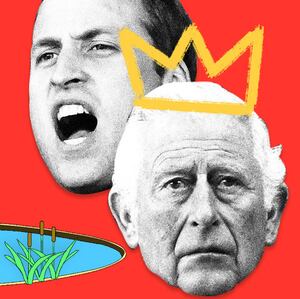If you love The Daily Beast’s royal coverage, then we hope you’ll enjoy The Royalist, a members-only series for Beast Inside. Become a member to get it in your inbox on Sunday.
It has been an intense 24 hours in the royal news cycle.
Just after 2 p.m. British time on Thursday, the BBC published a long-awaited report into the 1995 Martin Bashir interview with Princess Diana, which concluded in no uncertain terms that Bashir lied to and deceived Princess Diana and her brother to land the interview.
Eight hours later, William and Harry issued coordinated statements responding to the report.
Harry’s statement explicitly accused the BBC of being responsible for the death of his mother: “Our mother lost her life because of this, and nothing has changed,” he said.
William’s statement, delivered via a video posted on Twitter, was equally charged: “It brings indescribable sadness to know that the BBC’s failures contributed significantly to her fear, paranoia and isolation that I remember from those final years with her,” he said.
While the two brothers, united in grief for their mother, constructed their very different statements, journalists around the world were watching advance copies of Harry's new mental health documentary in which he unloaded, yet again, on his father specifically and the monarchy more generally.
Just a few hours later, the entire five episodes popped up in Apple TV subscribers queues. The truly devoted stayed up all night, watching and parsing them on social media.
No one disputes that Harry had a horrific and traumatic childhood, and this documentary makes that point abundantly clear. No-one disputes that it is vitally important to destigmatize talking about mental health and celebrities can play an important role in this, as Lady Gaga’s amazing interview for the documentary showed (although the fact she wasn’t considered important enough to get to be interviewed by Oprah, only Harry did, was a little strange.)
But it seems increasingly odd that Harry is unable to talk about the undoubted trauma of his very public childhood grief without humiliating, embarrassing, and shaming his father, while simultaneously boasting of his own sense of “compassion.”
Harry accused his father of bullying him, of telling him that because he had to “suffer” so would Harry. He accused the monarchy of “conspiring” with the media to smear Meghan and of not protecting his mother. He said that their attempts to leave the royal life were blocked and made impossible. He said nobody talked to him about his mother’s death. And he accused the family of “total silence, total neglect.”
It was quite incredible to hear a clearly very angry Harry, as he talked about “the forces working against us,” say, “I’ve never had any anger through this. I’ve always had compassion.”
Actually, Harry seems just as angry and bitter as he has seemed in other interviews. That is understandable. But where he sees the “compassion” in all this is fascinating.
Harry also appears to believe his earlier interview with Oprah was also an example of “compassion in action” as the Archewell website describes the Sussexes’ mission, saying of the previous interview with Oprah, “I like to think that we were able to speak truth in the most compassionate way possible, therefore leaving an opening for reconciliation and healing.”
Huh? One would have thought that the first step towards reconciliation in these circumstances and acting compassionately to your father would be to stop publicly ripping chunks out of him.
But suddenly, these films weren't really about Harry coping with the anxiety caused by his fear of flying into London using trendy new therapies such as tapping. It wasn’t even about the deeply distasteful implied comparison between Harry’s difficulties and a tragic Syrian child refugee who found his brother blown to bits in an Idlib playground.
The documentary makers appeared to be trying, at one stage, to get the child to overcome his unimaginable trauma using the same tapping therapy, also called EMDR (Eye Movement Desensitization and Reprocessing), that Harry was using in his $17m Montecito mansion to cure his Heathrow panic attacks.
No, as we approached the end of episode five, The Me You Can’t See degenerated into a rehashing of the same old list of Harry and Meghan’s grievances, well familiar to and very much seen by all readers of Finding Freedom. The topspin of therapy-speak provided a justification for Oprah to invite Harry to revisit the detail of his family feud.
There is an eerie thread here, for those who wish to see it, back to Diana’s Panorama interview.
Diana thought she was in control when she sat down with Martin Bashir. For all of Harry and William’s dutiful and completely understandable attempts to paint Diana as the hapless, naïve, and innocent victim of a conniving media machine and rogue reporter, the truth is that Diana absolutely cooperated with Bashir for the interview.
She wanted to do it. She wrote him a note after the interview saying that she had not been pressured or deceived into doing it. She told her friends that she considered the interview a triumph, and collaborated with countless other journalists in a desperate effort to get her story out there, including sending hours and hours of tape recordings to Andrew Morton for him to use in his book about her.
And guess what? Her story got sensationalized.
The parallel with Harry is uncanny.
Harry no doubt believed every bit as much as Diana did that he was totally in control of the situation when he sat down to tell Oprah his story. He was co-producer for the show for goodness sake! But Oprah is making a product, just as Martin Bashir was all those years ago, and Harry is the raw material, just as Diana was all those years ago.
One wonders whether Archie might conclude his father was exploited by Apple in the same way his grandmother was exploited by the BBC, if he sits down to watch Oprah’s cozy chats with him 25 years hence.







